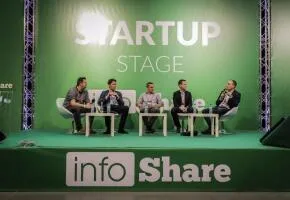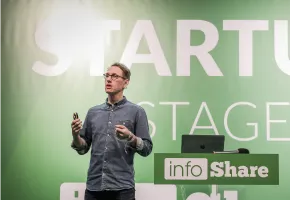 24.07.2017
24.07.2017
Advanced technology innovation plus strong business competence make a tech success story
Central-Eastern Europe is under the radar for many investors, so startups coming from there have just 5 minutes to attract attention and take the money. We asked Kristjan Laanemaa, founding partner at Karma Ventures, an Estonia-based fund to give some tips and suggest some tricks to winning the race.
An interview by Agnieszka Meller, infoShare
AM: Karma Ventures backs companies with strong ideas delivered with unique technology, customer traction, and global ambition. What are some tips for startups to increase their chances to get through your mailbox?
Kristjan Laanemaa, Karma Ventures: We at Karma like to work with companies that have a really solid technology advantage that puts them ahead of the competition. And when I’m talking about technology advantage, I mean unique technology developed by the company. In broad terms, there are tech companies that are developing and selling products based on existing technologies and tech companies that are innovating, not just on the product but also on the technology itself. The latter are those that catch our interest.
At the same time, unique tech without a real business world application and weak commercialization is most likely not going to become a tech success story. Therefore, we also seek some kind of commercial market validation to the offering. The best validation, of course, would be paying customers, but pilot customers giving strong references can also be a good indicator.
All this does not mean that other important aspects, like an experienced team, large market size, and scalability of business model would not matter to us. They definitely need to be in place as well.
AM: Would you mind sharing your investment strategy for startups interested in approaching you. What does the process, from the first contact to investment look like? Are there any milestones? Are any steps more important than others? Are any non-changeable agreements of hundreds of pages along the way? What should I know to decide if working with you fits me?
KL: Mostly, all new investment opportunities are firstly screened by one of our team members, which means reviewing the material presented by the company and often having an intro call or a meeting. The screening compares the opportunity against our main filters – region, company stage, product/technology uniqueness, market size, commercial traction, team experience.
Next, we discuss opportunities at a weekly team meeting where all team members have an opportunity to express an opinion. If we find the opportunity interesting, we move to a more detailed business due to diligence phase and usually agree on a meeting where the company will meet our whole team. After passing the team meeting, usually, the second meeting with our technology advisors will follow. If there is a positive conclusion, we then typically issue a term-sheet.
Between each of these milestones, we have an active dialogue with the company, where we ask for additional information and have reference calls to learn more and prepare a strong basis for a high-quality decision.
In a term-sheet, we generally try to agree on all the important investment conditions, so later the agreement drafting process is easier. When a term-sheet is signed by us we focus on closing the deal. In this stage, we would also do legal due diligence and usually only a major negative finding and not being able to agree on resolving it would derail the closing process.
AM: What kind of investor are you? Observer? Mentor? Advisor? Bookkeeper? Guard? Or someone else?
KL: We invest in a relatively early stage of a tech company and in this phase, many things are still unclear and need to be figured out. We like to be an active participant in discussions on how to move forward and set everything in place to reach the next important milestones. We would never interfere with the management’s job but would rather help the team to set the right targets in order to be able to raise the next investment round, challenge them to achieve higher goals, give our opinion based on our past experience and offer our support in any way we can. This is usually done by us participating as a supervisory board member but if in the seed stage there is no board, we have an informal open discussion with the founders.
AM: Last year the big news was that a new €40M European Series A Fund was to be made available for European Startups. Do you have any internal priority concerning geography or industry for this fund? I presume the CEE startups are under the radar as well.
KL: We have a mandate from our investors to invest all over the European Union. But in order to have a stronger brand and better visibility, we focus our active work on attracting companies to work with us in the Baltic Sea countries – Scandinavia, Germany, Poland and Baltics. In 2016 we sourced over 580 new deals from this area which is ca. 65% of our whole deal flow for 2016. We keep ourselves open to other regions as well but on a more opportunistic basis. Luckily, having worked with a global tech investment portfolio in Ambient Sound Investments, we have a good network, which brings us great opportunities also from regions where we don’t spend that much time.
AM: I know it might be too early, but is there any startup really close to joining your portfolio, of course, only if you feel you can share?
KL: We actually have closed three investments to date. Because of different reasons, we have not yet disclosed the investments yet, but we expect to go public with them in April. A number of deals are also in the closing phase, so there will be a series of exciting announcements during the next few months.
AM: I cannot avoid the Skype question. Would you like to explain your connection with the brand?
KL: Karma’s cornerstone investment came from the founding engineers of Skype. And two of them – Jaan Tallinn and Ahti Heinla are our key advisors who help us to validate the companies from a technology angle. Also, me and one of my Karma Ventures co-founders, Margus Uudam (editor’s comment: there are altogether three co-founders, the third co-founder is Tommi Uhari), and I formerly managed the early stage tech investment portfolio of the Skype’s founding engineers at Ambient Sound Investments. We used to work with a number of teams that grew from Skype. So, all in all, there are several touch points but I think the main value that we get from these is the network of people that have worked on this exciting story, from the technical as well as the business side.
AM: Thank you for your time.
Tags:
See also:
 24.07.2017
24.07.2017
LATEST NEWS
Od czego zależy sukces wdrożeń AI? - polskie i amerykańskie trendy w branży tech 24.10.2025
Five highlights from EU Space Days 2025 13.06.2025
🤝 Networking i zabawa na Infoshare 2025 30.04.2025
⭐ Spotkaj liderów innowacji | Keynote Speakers 23.04.2025
🎸 Zagraj na Great Networking Party | Call for Bands 16.04.2025
🏆 Gdańsk Startup Award – Twoja Szansa na Sukces! 09.04.2025


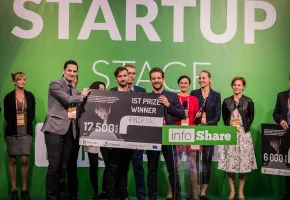
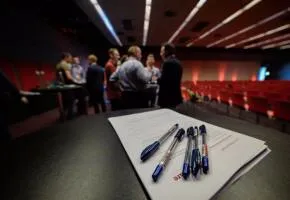
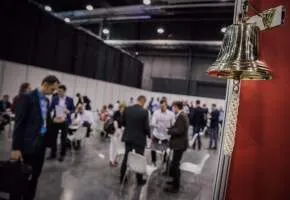
![Great companies [will] come from Central Eastern Europe](https://infoshare.pl/system/cache/img/infoshare-2016-inspire-foto-wojtek-rojek-212-4-39jgahdk51r0.webp)
